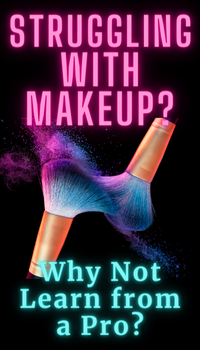Lurking At The Threshold
 You know, I’ve been thinking about the whole branding of the “trans†condition lately.
You know, I’ve been thinking about the whole branding of the “trans†condition lately.
I’m not so much into this “new agey†best of both worlds BS that gets floated around from time to time. Probably because it seems terribly impractical, overly idealistic, and excessively convenient. You can’t just re-invent the world to make yourself feel better.
But sometimes the world re-invents itself. And more often than not, radical people with big ideas are right there pushing for that change.
Take, for example, the idea of “manâ€. As a word, it’s merely a symbol that when we see or hear it, a certain imagery and association is conjured. But that imagery and association is different now than it was fifty, or even twenty, years ago. As we have progressed, the typical “man†has softened in our cultural consciousness… an image that was once hard and sometimes a little scary has become more lean, sophisticated, and gentler. The epitome of this is the phenomenon known as the “metrosexual†– an initially derogatory term that quickly became rather toothless – wherein pedicures and fashion sense became entirely accepted qualities in a male.
And I don’t think it’s unfair to say that the “metrosexual†train derived a lot of its momentum from the gay community… the Queer Eye For The Straight Guy gang emerging as the public figureheads for it, after all.
So these really important cultural notions are always under “discussion†so to speak, being re-thought, re-imagined, and re-defined.
Which bring us to the trans-community.
There is a conversation going on everyday about what it means to be a “woman†in our culture. Ironically, men dominated that conversation for centuries, by virtue of the fact they dominated everything. More than anything “woman†meant “not manâ€*. But in this country, and dating back decades now, women have been slowly chiseling away at the definition handed to them, refusing to be mandated to about how or what they should be. Suffrage and feminism, and even lesbianism, have helped shape our new image of “womanâ€.
Sadly, the MtF trans-community isn’t included in that. It seems to be in our nature, really. Things like “passing†and “stealth†– Holy Grails of the transgendered – are predicated upon embracing cultural norms. Essentially, we bend to meet expectation, rather than elevate expectation to meet us. In fact, I’ll go so far as to say that many (most?) of us embrace a cultural norm twenty or thirty years old (if not older) that’s more in line with the way men wanted women to be, as opposed to any current thinking on the subject.
At any rate, you can see for yourself where this is going. Even with all our forces marshaled, it would be a feat of cyclopean proportions to convince all of Western civilization that their working definition for “woman†should include some who were born with penises. At the very least, society will always need a way to distinguish between those of us who are natal-born and those who are self-made. But currently there are only a grim-faced handful of us girding for the challenge, while the rest of our “sisters†quietly slip away into the night.
And we wish we were with them.
*This is a bold and generally irresponsible claim to make, since I don’t really have any factual knowledge to back it up. But I’m pretty sure I could google a few dozen bits of corroborating evidence, if I wasn’t being lazy.
Category: Transgender Opinion











“If you’re comfortable with yourself and know who you are then you’re passing with the most important person.”
I like that a lot.
Maggie
Ya all know this is about the old central issue of gender crossing—passing. In order to pass as female many of us who are vaginally challenged (I stole that phrase from a local performer) work hard to give out as many gender clues indicating, “I’m a woman! I’m a woman!” as we possibly can. For CDs, who also enjoy all the culturally established feminine gender clues (long painted nails, high heels, flouncy skirts, lipstick, etc) passing becomes an exciting goal. When you hear a CD say, “And they called me Miss! It was great” you know that she is feeling an ecstasy that no one else (non-CD) can understand. To a TS being called “miss” is a relief. They are being treated as a member of the gender they belong to. What both categories share though is concern that they will be treated badly if people realize that they are not natal females. Since most of the country is now free of laws against crossdressing the TG who wants to go out and about shouldn’t have to worry about what people think. But that’s in a perfect world. As Maggie pointed out, in her area of California no one will bat an eye at some who doesn’t conform. But in other areas of California being different could be a problem. Everyone has to decide how safe it is in their neck of the woods to be different and make their public presentation choices based on that. Whether you’re vaginally challenged or not the world judges you. If you’re comfortable with yourself and know who you are then you’re passing with the most important person.
Wow, two comments on the first morning of publication! I’m beside myself!
Ronnie, no bra burning necessary! In fact, I’ll go so far as to say that certain elements of feminism were completely misplaced, in that by rebelling against certain norms, they were actually sacrificing a part of their own femininity. A part they might not really have wanted to give up, but felt like they had to to prove a point.
Maggie, you hit exactly on what I’m talking about. The greatest discovery I’ve made on this journey is that “woman” means a whole lot of things…in fact, it can mean just about anything. Natal-born women can get away with a whole lot, and while certain expressions may be more obviously feminine in a classical way, it doesn’t infringe on their womanhood.
The voice thing is a huge bugaboo of mine. I don’t have the deepest natural voice (though pretty deep), but I’m tone deaf and can’t really here the inflection and pitch, even when I’m playing with it. And I find myself wondering over and over, “Why do I have to do this part? Does it really have anything to do with who I am?” Then, of course, I get sir’d over the telephone or at the fast food drive through and I feel like crap.
I think that you are quite right in the statement
“that many (most?) of us embrace a cultural norm twenty or thirty years old (if not older) that’s more in line with the way men wanted women to be…”
It’s hard to be different. I know that it is certainly the root of my public fears. However I have a couple of close full-time friends who really don’t care if they are read or not. They don’t dress particularly femininely, most of the time, but do move about fearlessly in urban California. One of them hasn’t even tried to alter her voice. I suspect that this could be a lot harder in Kansas than here. but maybe I too am just engaging in stereotypes.
I once went to a retreat where the discussion groups about being trans were led by the participants. One of them was centered around “what is a woman”. The leader was a genetic woman who happened to be visiting the people who own the facility that was hosting the event and who was rather large and whose hair was 1/4″ long (as an example of her many defiances of the cultural norms). Of course the tranny girls came up with every possible societal stereotype, many of which didn’t seem to fit her. she put us all in our places for being a bunch of sexists.
We all have a right to express our true selves, but it is the rule breakers who will make this a better world for us all.
Maggie
So, if I understand you correctly, the transition from tough guy to metrosexual needs a parallel in the world of femininity? Except, it would be going from Donna Reed to women’s lib to…trans lib? We don’t have to burn our bras, do we?